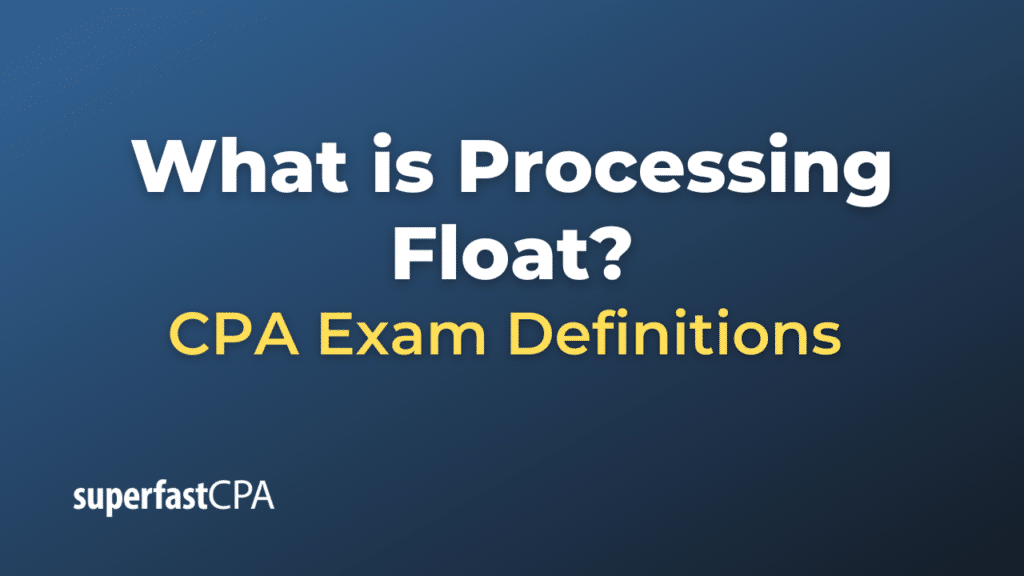Processing Float
Processing float refers to the amount of time it takes for a bank to process a transaction. This could include the time it takes to clear a cheque, transfer funds from one account to another, or process a payment.
The term “float” is used because during this processing time, the money is considered to be “floating.” It’s in transition and not available for use by either the payer or the payee. For example, if you write a check, the money is deducted from your account when the check is cashed, not when you write it. The time between when you write the check and when it’s cashed is the processing float.
While the actual time for electronic transactions has significantly reduced in the era of digital banking and instant transfers, there can still be a delay in some types of transactions, such as when transferring money between banks or between different countries. During this time, the money might be counted in the sender’s account, the receiver’s account, both, or neither, depending on the banks’ policies and the specific banking regulations in place.
It’s important for businesses and individuals to be aware of processing float to manage their cash flow effectively and avoid potential overdraft fees or bounced checks.
Example of Processing Float
Let’s say you own a small business and receive a check from a customer for $1,000 on a Monday. You deposit the check into your business bank account the same day. However, your bank does not clear the check immediately – it takes them two days to verify the check and add the funds to your account.
During these two days (Tuesday and Wednesday), the $1,000 is in processing float. It’s been deducted from your customer’s account but it hasn’t been added to your account yet.
So, while the $1,000 is in processing float, it’s essentially in limbo – it’s not available to your customer because it’s been deducted from their account, and it’s not available to you because it hasn’t been added to your account.
This is why it’s crucial for businesses and individuals to be aware of processing float times to accurately manage their cash flow. If you were relying on that $1,000 to cover a bill due on Wednesday, you could potentially incur overdraft fees or face other consequences due to the delay caused by processing float.














